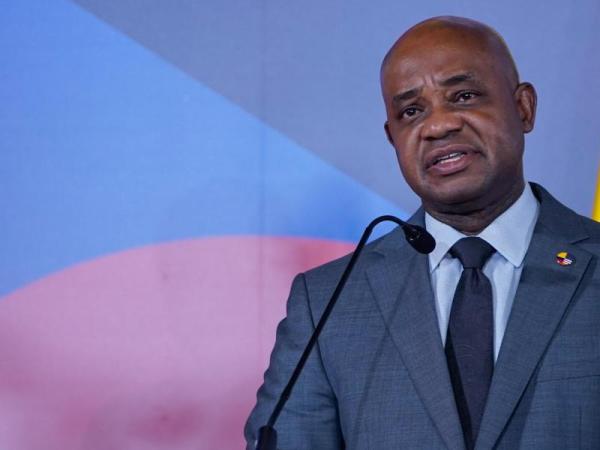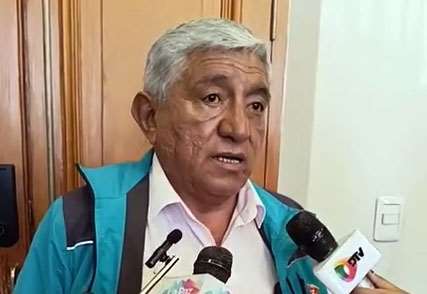It was a highly celebrated achievement when the Semeando Esperança daycare center, in the community of Santa Luzia, in the Federal District, managed to purchase, with donations, a new refrigerator to meet the needs of 30 children from vulnerable families there.
The problem is that, at the time of purchase, the daycare director, Paulo Lafayete, did not have the zip code or formal address, like so many other Brazilian favelas. It was necessary to give the zip code of a known person. “It’s very bad. Everyone here feels excluded,” said the educator. Around 20 thousand people live in the community.
This is just one of the problems that the Periferia Viva Program, launched this Thursday (28), by President Luiz Inácio Lula da Silva and ministers, tries to reduce. The CEP para Todos project is part of the program and foresees that all homes in favelas will have a zip code by 2026.
The federal government announced that it will invest more than R$7 billion in the upgrading of favelas, prevention of disasters on hillsides, housing improvements and land regularization.
“They keep what’s left”
At the launch of the public policy, President Lula explained that the main foundation of the program is to make the periphery visible. “There are people who can choose their profession. But there is another part of society that takes what is left. Likewise, there is a part of the people who choose where to live. And others keep what’s left”, the president was moved.
In this context, Lula lamented that 4.5 million homes still do not have a bathroom. “I didn’t imagine that this could happen in 2024. I lived in a house in Vila Carioca [São Paulo] with 27 people. In this house, there was no running water, nor a bathroom with a toilet. We also didn’t have a refrigerator. I know what life is like for those who don’t have the right,” he said.
The president recalled that investment in public policies has been well planned, as the government also seeks to contain expenses. “We cannot spend more than the Budget”. He defended the Income Tax exemption for people earning up to R$5,000 and, to balance the books, he advocated charging more taxes to “richer” people. “Let’s try to make the country a little more fair, humane and fraternal.”
He argued that Brazilian peripheries have historically been placed in the background. “You will no longer be invisible. We see you.”
Strategies
At the event, the government announced contracts worth R$1.4 billion in slope containment works and R$3.3 billion in favela urbanization actions, both foreseen in the New PAC.
The Executive argued that this would be the largest public policy package for the country’s peripheries. The Periferia Viva program brings together investments in urban infrastructure carried out by the Ministry of Cities and actions by 16 other partner ministries.
The Periferia Viva program provides a package of actions for the preparation of 120 municipal risk reduction plans in critical municipalities, with a focus on proposing works that reduce risks in the outskirts of these cities.
According to the government, the perspective is that, by 2026, all municipalities that have favelas (in high or very high risk areas) will benefit from municipal Risk Reduction plans financed by the federal government, with an investment of R$63 million. Furthermore, 19 thousand land regularization and housing improvement contracts, in eight Brazilian states, will have federal investment in excess of R$85 million.
Another action announced was an agreement between the Ministry of Cities and the Brazilian Institute of Geography and Statistics (IBGE) to facilitate research and production of data on Brazilian favelas and peripheries.
Recognition
The program also recognized social initiatives in the outskirts. Among them, Joyce Paixão, from Pernambuco, works on the banks of the Capibaribe River. “We created an adaptation plan, with presence and mitigation for the effects of the rains.”
Another winner was Favela Gastronômica, from Brasilia’s Cleide Morais. It is a social gastronomy school that promotes food security, combats food waste in the outskirts and generates sustainable solutions to combat hunger and reduce social inequalities. “This work began more than 20 years ago and we had our objectives reformulated in 2020, during the Covid-19 pandemic,” she highlighted.
“The project was proposed by women from the community, from the Nossa Senhora de Fátima neighborhood, in Planaltina [DF]. The people benefiting are residents of the outskirts, who live in vulnerable situations. “We promote these trainings in the area of gastronomy to be inserted into the formal job market and open their own business. The project is especially aimed at black women, who are those who suffer most from food insecurity”, he explained.















